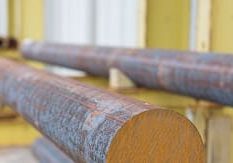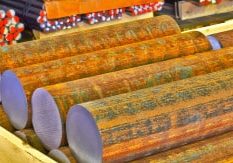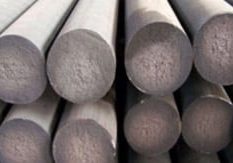Cast Iron Supplier
Unibar 200, 250, 300, 350 & 400-18LT



Unibar 200
Unibar 200 is a predominantly ferritic iron and the softest grade in the Unibar portfolio, offering exceptional machinability and excellent surface finish, but limited strength and wear resistance. Noise, vibration damping and thermal conductivity are excellent in this grade of cast iron.
Unibar 250
Unibar 250 is a pearlitic-ferritic iron that offers a good combination of strength and wear resistance over Unibar 200, while still possessing good machinability and an excellent surface finish. Due to the graphite structure in Unibar 250, noise and vibration damping along with thermal conductivity are excellent in this cast iron grade.
Unibar 300
Our grey iron Unibar 300 is alloyed to achieve the specified properties, giving excellent wear resistance, strength and heat-treatment response compared to Unibar 200 and Unibar 250, while still possessing reasonable machinability and an excellent surface finish. Noise and vibration damping are good in this grade.
Unibar 350
Unibar 350 is a special grade alloyed to achieve specified properties, gives excellent wear resistance and strength. Suitable for all heat-treatment applications, the pearlitic structure giving a better response compared to Unibar 200, 250 and 300, while still possessing reasonable machinability and producing a good surface finish after machining. Noise and vibration damping are good in this grade.
Unibar 400-18LT
Our spheroidal iron Unibar 400-18LT offers superior machinability combined with good low-temperature impact, fatigue, electrical conductivity and magnetic permeability, along with an increased ductility over Unibar 400-15. Noise and vibration damping are good in this cast iron Unibar.
Absolutely! Cast iron is completely oven-safe, making it ideal for dishes that transition from stovetop to oven, like frying chicken and then baking it to a golden crisp.
- Durable
- Heat Retention
- Versatile
- Affordable
Cast iron is not a single material, but a family of iron-carbon alloys with varying properties. When selecting cast iron for your project, consider these critical factors:
Application Requirements: Identify the primary function of the cast iron component...
- Strength: For parts requiring high tensile or compressive strength, ductile iron or CGI might be better options than grey iron.
- Impact Resistance: If the component will experience shock or impact loads, ductile iron is a strong contender.
- Machinability: If extensive machining is needed, grey iron's excellent machinability can be a benefit.
- Heat Resistance: Some applications require heat resistance. Consider the operating temperatures and choose a grade that can withstand them.
- Weight Considerations: Cast iron is generally heavy. If weight is a critical factor, explore alternative materials or consider optimizing the cast iron component design.
- Corrosion Resistance: While cast iron generally offers decent corrosion resistance, some grades excel in specific environments. For example, some grades with higher nickel content provide better resistance to saltwater corrosion.
- Cost: Cast iron offers excellent value, but there are cost differences between grades. Ductile iron, for example, may have a slightly higher cost than gray iron.

